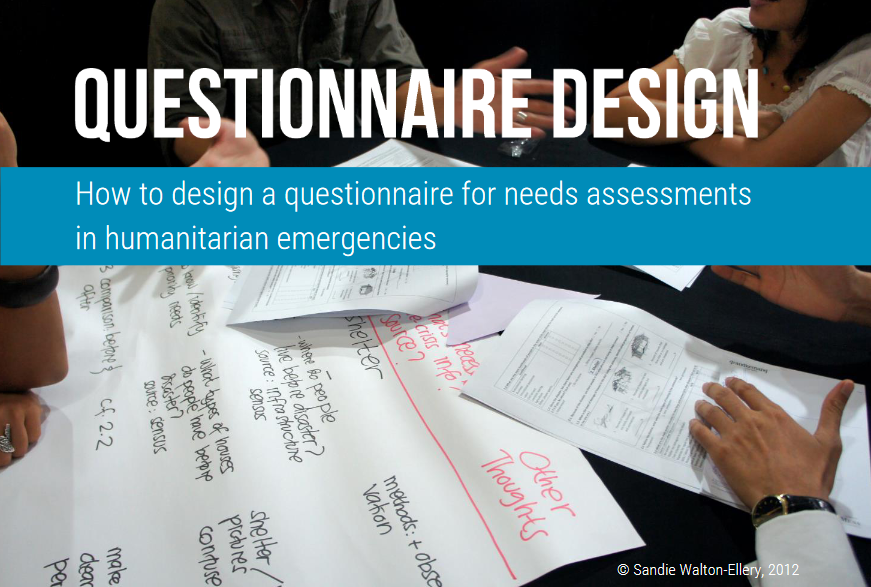Still have questions?
You could not find the information you were looking for? Please contact our helpdesk team of experts for direct and individual support.

Sanihub - search - Questionnaire Design. How to Design a Questionnaire for Needs Assessments in Humanitarian Emergencies
Author: ACAPS
Year: 2016
Publisher: ACAPS
There is no shortage of questionnaires used during emergencies that are too long, overly complex or unable to generate useful responses. The art of developing an effective questionnaire is the topic of master degrees and doctorates. The questionnaire is a critical tool in humanitarian response and requires time, resources and a detailed understanding of the context, factors which are all in short supply during an emergency. This technical brief aims to support the design of questionnaires for use in humanitarian emergencies by providing a set of guiding principles and a step-by-step process. If many of the principles detailed are universal to the development of any type of questionnaire, most of the examples used in this brief are related to strategic needs assessments implemented at the community level rather than the household level, e.g. Multi Cluster Initial and Rapid Assessments.
"*" indicates required fields
You could not find the information you were looking for? Please contact our helpdesk team of experts for direct and individual support.


This website uses cookies so that we can provide you with the best user experience possible. Cookie information is stored in your browser and performs functions such as recognising you when you return to our website and helping our team to understand which sections of the website you find most interesting and useful.
Strictly Necessary Cookie should be enabled at all times so that we can save your preferences for cookie settings.
If you disable this cookie, we will not be able to save your preferences. This means that every time you visit this website you will need to enable or disable cookies again.
This website uses Google Tag Manager to collect anonymous information such as the number of visitors to the site, and the most popular pages.
Keeping this cookie enabled helps us to improve our website.
Please enable Strictly Necessary Cookies first so that we can save your preferences!
More information about our Cookie Policy
